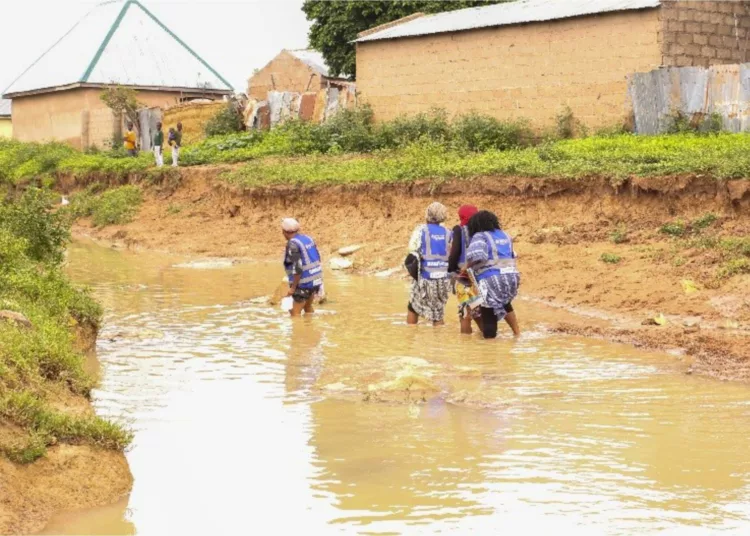The far-reaching effects of climate change are being felt worldwide, and Nigeria is no exception to this growing crisis. Climate change is intricately linked to the depletion of the ozone layer, which acts as a protective shield against the sun’s intense heat. Unfortunately, the release of certain gases into the atmosphere, caused by both human and natural factors, is causing the depletion of this vital layer. Notable culprits among these gases include carbon monoxide, sulfur dioxide, and chlorofluorocarbons (CFCs).
Agricultural sectors, including fisheries and forestry, are particularly vulnerable to the adverse effects of climate change. Nigeria has experienced seasons of drought and excessive flooding, disrupting agricultural activities and causing displacement and loss of shelter. In 2019, the National Emergency Management Agency reported that floods had displaced approximately 1.9 million Nigerians.
Climate change has also disrupted the natural distribution of crops in Nigeria. Regions that rely on rainfall for crop growth, such as the south, have suffered from excessive rain, leading to stunted crop growth. Conversely, prolonged droughts in the north have withered crops that depend on regular rainfall. This disruption in crop production has led to food scarcity, impacting the quality and quantity of food crops available for distribution across the country.
Livestock farming is also adversely affected, as irregular climatic conditions destroy grazing lands and promote the growth of pests that attack farm animals. This, in turn, affects the commercial value of livestock and threatens the livelihoods of many Nigerians who depend on farming.
Climate change exacerbates health challenges in Nigeria, particularly in the case of diseases like malaria. Stagnant waters resulting from climate-induced flooding create breeding grounds for disease-carrying mosquitoes. The burden of malaria, especially among vulnerable groups like the young and the elderly, places added strain on public health and nursing services.
Additionally, climate-related events, such as wildfires and dust storms during droughts, contribute to respiratory illnesses, further burdening the healthcare system. These preventable health issues can lead to unnecessary deaths if not adequately addressed.
While industrialized countries bear significant responsibility for climate change, individual global citizens, including Nigerians, can contribute to mitigating its effects. Reducing deforestation activities is a crucial step in the right direction, as trees absorb harmful greenhouse gases.
To address the challenges posed by climate change, Nigeria must take proactive measures at both the national and individual levels:
The federal government should allocate resources to agricultural science research to develop crops that are resilient to harsh climatic conditions, ensuring food security.
Stringent enforcement of climate change policies, particularly laws regulating emissions from industrial activities, is essential. Petroleum companies operating in the Niger Delta region must be held accountable for their environmental impact.
The federal government should collaborate with relevant stakeholders across ministries to revise and implement policies based on accurate data and current environmental needs.
Mass media campaigns should educate Nigerians about the environmental consequences of their activities, fostering a culture of sustainability.
Climate change poses a significant threat to Nigeria’s economic growth and well-being.
















